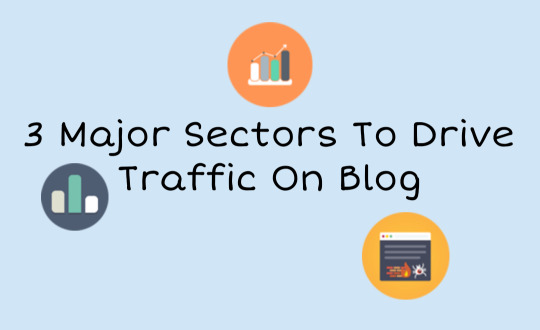#SEO Google Discover
Explore tagged Tumblr posts
Text
Qual é a Melhor Estratégia para Entrar no Google Discover?
O Google Discover é uma plataforma que apresenta conteúdos personalizados para os usuários, baseados em seus interesses e comportamentos de navegação. Para aqueles que desejam expandir o alcance de seu conteúdo, entrar no Google Discover é uma excelente oportunidade. Com mais de 800 milhões de usuários, ele permite que sites e blogs alcancem uma audiência vasta e altamente engajada. Mas afinal,…
#Aparecer no Google Discover#Como entrar no Discover#Conteúdo para Discover#Conteúdo popular Discover#Dicas Google Discover#Engajamento Discover#Entrar no Google Discover#Estratégia de conteúdo#Estratégia de SEO#Google Discover#Google Discover 2024#Google Discover algoritmo#Google Discover conteúdo#Google Discover dicas#Google Discover estratégia#Google Discover guia#Google Discover SEO#Google Discover sucesso#Melhor estratégia SEO#Melhores Práticas SEO#Otimização de conteúdo#Otimização Google Discover#Posicionar no Discover#SEO atualizações#SEO avançado#SEO Google Discover#SEO para blogs#SEO para celular#SEO para Google Discover#Tráfego Google Discover
0 notes
Text
آموزش گوگل دیسکاور
ترافیک خوب از دیسکاور فقط برای سایت های خبری نیست!
هر نوع سایتی میتونه از #دیسکاور گوگل ورودی بگیره
در این دوره کوتاه کامل #دیسکاور_گوگل رو توضیح دادی�� و بهتره در کنار ورودی ارگانیک از #سئو از#گوگل_دیسکاور هم برای سایتهاتون مخصوصا فروشگاهی استفاده کنید
بعد از شرکت در این مینی #دوره میتونید یک #مشاوره رایگان برای دیسکاور سایتتون بگیرید از ما
برای مشاهده سرفصل ها روی لینک ذیل کلیک کنید
https://jobteam.ir/Course/1046-discover-google
#opentowork#discover#digitalmarketing#google#seo#آموزش_سئو#آموزش_دیسکاور#جاب_تیم#استخدام#مشاوره#دیسکاور_گوگل#گوگل_دیسکاور#دوره
3 notes
·
View notes
Text
Google Discover es una función de la plataforma de Google que presenta a los usuarios contenidos personalizados y relevantes basados en sus intereses y comportamientos de navegación.
Otra información que te puede interesar:
Agencia SEO
Posicionamiento SEO
Diseño de tiendas online
6 notes
·
View notes
Text
Optimizing for Google Discover: Top Strategies for Ranking and Boosting Traffic in 2024. How To Increase Traffic from google discover.
6 notes
·
View notes
Text
Google砲と言われているDiscoverって何?

View On WordPress
5 notes
·
View notes
Text
0 notes
Text
Home Doctor
I recently purchased Home Doctor: Practical Medicine for Every Household and I'm impressed by its wealth of information.
Clear and concise guidance
The book is written in a clear and concise way, making it easy to understand even for those with no medical background. It covers a wide range of common ailments and injuries, providing step-by-step instructions for treatment at home.
Empowering knowledge
Home Doctor empowers you to take charge of your health and the well-being of your family. The knowledge gained from this book can give you peace of mind in situations where immediate medical attention may not be available.
A valuable addition to any home
I highly recommend Home Doctor to anyone who wants to be prepared for minor medical emergencies. It's a valuable addition to any home library.
Book: click here
#ls#Our data#Resources#Pricing#Enterprise#Sign in#Sign up#Ahrefs#Free SEO Tools /#Free Keyword Generator#Find thousands of keyword ideas in seconds.#Google#/#Bing#YouTube#Amazon#Home Doctor#For example#keyword research#United Kingdom#Find keywords#Discover keyword ideas#all day long#Fill your content calendar for weeks#months#or even years in minutes.#Phrase match#Having same terms#Also rank for#Search suggestions
0 notes
Link
Google Discover SEO: Google Discover is a personalized feed of content that appears on Google Search and the Google app. It shows users articles, videos, and other types of content that Google thinks they’ll be interested in, based on their search history, browsing habits, and other factors.
0 notes
Text
3 Major Sectors of Google to Drive traffic on your Blog
How will you feel when you work hard to write a post for your blog and it does not get any views and all your hard work goes in vain, doesn’t it feel bad? If there is one most important thing for every blogger then it is traffic. If traffic does not come to your blog then it is just a loss. 1. Leveraging Google News Google news is a product of Google which is specifically a spot for news and…

View On WordPress
0 notes
Text
https://beebigdigital.com/blogs/why-digital-marketing-is-the-best-to-expand-business-in-the-year-2023
digital marketing is the best to expand business in the year 2023 Explore cutting-edge tactics for business expansion in 2023 through digital marketing. Discover the latest trends and tips in this blog post. digital marketing company, digital marketing agency, digital marketing services, digital marketing agency, digital marketing company in Mumbai, digital marketing agency in mumbai, Search Engine Optimization Company, SEO Company, Social Media Marketing Company, Social Media Marketing Agency, Google Adword Company, Facebook Advertisment Company, Advertisment Company, Advertisment Agency,
#digital marketing is the best to expand business in the year 2023#Explore cutting-edge tactics for business expansion in 2023 through digital marketing. Discover the latest trends and tips in this blog pos#digital marketing company#digital marketing agency#digital marketing services#digital marketing company in Mumbai#digital marketing agency in mumbai#Search Engine Optimization Company#SEO Company#Social Media Marketing Company#Social Media Marketing Agency#Google Adword Company#Facebook Advertisment Company#Advertisment Company#Advertisment Agency
0 notes
Text
Como entrar no Discover para monetizar com o AdSense: Estratégias e Dicas Essenciais
O Google Discover é uma ferramenta poderosa que permite que os sites ganhem visibilidade entre milhões de usuários que buscam informações relevantes e personalizadas. Aprender como entrar no Discover para monetizar com o AdSense pode ser a chave para aumentar a receita de seu site. Neste artigo, você encontrará estratégias e práticas recomendadas para se destacar no Discover e maximizar seus…
#AdSense Discover monetização#Alcançar Google Discover#Aparecer no Google Discover#Aumentar tráfego Discover#Como entrar no Discover#Como usar Discover#Configurar Google Discover#Descobrir Discover Google#Discover AdSense dinheiro#Discover do Google#Entrar no Discover#Estratégia Discover#Ganhar com AdSense#Ganhar Discover Google#Ganhar no Discover#Google Discover AdSense#Google Discover dicas#Google Discover SEO#Monetização Discover#Monetizar com AdSense#Monetizar conteúdo Discover#Otimizar para Discover#SEO AdSense Discover#SEO conteúdo Discover#SEO Discover Google#SEO para AdSense Discover#SEO para Discover#Técnicas para Discover#Tráfego Discover#Tráfego orgânico Discover
0 notes
Text
12 ترفند برای ترافیک بیشتر از گوگل دیسکاور
افزایش ترافیک سایت با 12 ترفند از طریق گوگل دیسکاور
در این آپدیت 12 نکته برای نمایش در #دیسکاور رو بیشتر توضیح دادیم تا بتونید برای سایتتون #ترافیک بیشتری جذب کنید
نکاتی مثل بزرگتر نشان دادن تصویر
گویاتر بودن #محتوا
چه محتوایی بجز متن در صفحه امتیاز محسوب می شود
و ...
https://jobteam.ir/ProductUser/1046-discover-google

1 note
·
View note
Text

#🚀🚀Get Discovered on Google with Google My Business🚀🚀#🔥Visit:www.digitalmediazz.com#✅WhatsApp: +9199641 88588#googlemybusiness#google#localbusiness#startups#website#design#graphicdesign#webdevelopment#marketing#digitalmarketing#seo#branding#websitedesign#webdeveloper#web#socialmedia#business#socialmediamarketing#wordpress#ecommerce#logo#digitalcreation#onlinemarketing#smm#contentmarketing#canvadesign#infographics
0 notes
Text
Even if you think AI search could be good, it won’t be good

TONIGHT (May 15), I'm in NORTH HOLLYWOOD for a screening of STEPHANIE KELTON'S FINDING THE MONEY; FRIDAY (May 17), I'm at the INTERNET ARCHIVE in SAN FRANCISCO to keynote the 10th anniversary of the AUTHORS ALLIANCE.

The big news in search this week is that Google is continuing its transition to "AI search" – instead of typing in search terms and getting links to websites, you'll ask Google a question and an AI will compose an answer based on things it finds on the web:
https://blog.google/products/search/generative-ai-google-search-may-2024/
Google bills this as "let Google do the googling for you." Rather than searching the web yourself, you'll delegate this task to Google. Hidden in this pitch is a tacit admission that Google is no longer a convenient or reliable way to retrieve information, drowning as it is in AI-generated spam, poorly labeled ads, and SEO garbage:
https://pluralistic.net/2024/05/03/keyword-swarming/#site-reputation-abuse
Googling used to be easy: type in a query, get back a screen of highly relevant results. Today, clicking the top links will take you to sites that paid for placement at the top of the screen (rather than the sites that best match your query). Clicking further down will get you scams, AI slop, or bulk-produced SEO nonsense.
AI-powered search promises to fix this, not by making Google search results better, but by having a bot sort through the search results and discard the nonsense that Google will continue to serve up, and summarize the high quality results.
Now, there are plenty of obvious objections to this plan. For starters, why wouldn't Google just make its search results better? Rather than building a LLM for the sole purpose of sorting through the garbage Google is either paid or tricked into serving up, why not just stop serving up garbage? We know that's possible, because other search engines serve really good results by paying for access to Google's back-end and then filtering the results:
https://pluralistic.net/2024/04/04/teach-me-how-to-shruggie/#kagi
Another obvious objection: why would anyone write the web if the only purpose for doing so is to feed a bot that will summarize what you've written without sending anyone to your webpage? Whether you're a commercial publisher hoping to make money from advertising or subscriptions, or – like me – an open access publisher hoping to change people's minds, why would you invite Google to summarize your work without ever showing it to internet users? Nevermind how unfair that is, think about how implausible it is: if this is the way Google will work in the future, why wouldn't every publisher just block Google's crawler?
A third obvious objection: AI is bad. Not morally bad (though maybe morally bad, too!), but technically bad. It "hallucinates" nonsense answers, including dangerous nonsense. It's a supremely confident liar that can get you killed:
https://www.theguardian.com/technology/2023/sep/01/mushroom-pickers-urged-to-avoid-foraging-books-on-amazon-that-appear-to-be-written-by-ai
The promises of AI are grossly oversold, including the promises Google makes, like its claim that its AI had discovered millions of useful new materials. In reality, the number of useful new materials Deepmind had discovered was zero:
https://pluralistic.net/2024/04/23/maximal-plausibility/#reverse-centaurs
This is true of all of AI's most impressive demos. Often, "AI" turns out to be low-waged human workers in a distant call-center pretending to be robots:
https://pluralistic.net/2024/01/31/neural-interface-beta-tester/#tailfins
Sometimes, the AI robot dancing on stage turns out to literally be just a person in a robot suit pretending to be a robot:
https://pluralistic.net/2024/01/29/pay-no-attention/#to-the-little-man-behind-the-curtain
The AI video demos that represent "an existential threat to Hollywood filmmaking" turn out to be so cumbersome as to be practically useless (and vastly inferior to existing production techniques):
https://www.wheresyoured.at/expectations-versus-reality/
But let's take Google at its word. Let's stipulate that:
a) It can't fix search, only add a slop-filtering AI layer on top of it; and
b) The rest of the world will continue to let Google index its pages even if they derive no benefit from doing so; and
c) Google will shortly fix its AI, and all the lies about AI capabilities will be revealed to be premature truths that are finally realized.
AI search is still a bad idea. Because beyond all the obvious reasons that AI search is a terrible idea, there's a subtle – and incurable – defect in this plan: AI search – even excellent AI search – makes it far too easy for Google to cheat us, and Google can't stop cheating us.
Remember: enshittification isn't the result of worse people running tech companies today than in the years when tech services were good and useful. Rather, enshittification is rooted in the collapse of constraints that used to prevent those same people from making their services worse in service to increasing their profit margins:
https://pluralistic.net/2024/03/26/glitchbread/#electronic-shelf-tags
These companies always had the capacity to siphon value away from business customers (like publishers) and end-users (like searchers). That comes with the territory: digital businesses can alter their "business logic" from instant to instant, and for each user, allowing them to change payouts, prices and ranking. I call this "twiddling": turning the knobs on the system's back-end to make sure the house always wins:
https://pluralistic.net/2023/02/19/twiddler/
What changed wasn't the character of the leaders of these businesses, nor their capacity to cheat us. What changed was the consequences for cheating. When the tech companies merged to monopoly, they ceased to fear losing your business to a competitor.
Google's 90% search market share was attained by bribing everyone who operates a service or platform where you might encounter a search box to connect that box to Google. Spending tens of billions of dollars every year to make sure no one ever encounters a non-Google search is a cheaper way to retain your business than making sure Google is the very best search engine:
https://pluralistic.net/2024/02/21/im-feeling-unlucky/#not-up-to-the-task
Competition was once a threat to Google; for years, its mantra was "competition is a click away." Today, competition is all but nonexistent.
Then the surveillance business consolidated into a small number of firms. Two companies dominate the commercial surveillance industry: Google and Meta, and they collude to rig the market:
https://en.wikipedia.org/wiki/Jedi_Blue
That consolidation inevitably leads to regulatory capture: shorn of competitive pressure, the companies that dominate the sector can converge on a single message to policymakers and use their monopoly profits to turn that message into policy:
https://pluralistic.net/2022/06/05/regulatory-capture/
This is why Google doesn't have to worry about privacy laws. They've successfully prevented the passage of a US federal consumer privacy law. The last time the US passed a federal consumer privacy law was in 1988. It's a law that bans video store clerks from telling the newspapers which VHS cassettes you rented:
https://en.wikipedia.org/wiki/Video_Privacy_Protection_Act
In Europe, Google's vast profits lets it fly an Irish flag of convenience, thus taking advantage of Ireland's tolerance for tax evasion and violations of European privacy law:
https://pluralistic.net/2023/05/15/finnegans-snooze/#dirty-old-town
Google doesn't fear competition, it doesn't fear regulation, and it also doesn't fear rival technologies. Google and its fellow Big Tech cartel members have expanded IP law to allow it to prevent third parties from reverse-engineer, hacking, or scraping its services. Google doesn't have to worry about ad-blocking, tracker blocking, or scrapers that filter out Google's lucrative, low-quality results:
https://locusmag.com/2020/09/cory-doctorow-ip/
Google doesn't fear competition, it doesn't fear regulation, it doesn't fear rival technology and it doesn't fear its workers. Google's workforce once enjoyed enormous sway over the company's direction, thanks to their scarcity and market power. But Google has outgrown its dependence on its workers, and lays them off in vast numbers, even as it increases its profits and pisses away tens of billions on stock buybacks:
https://pluralistic.net/2023/11/25/moral-injury/#enshittification
Google is fearless. It doesn't fear losing your business, or being punished by regulators, or being mired in guerrilla warfare with rival engineers. It certainly doesn't fear its workers.
Making search worse is good for Google. Reducing search quality increases the number of queries, and thus ads, that each user must make to find their answers:
https://pluralistic.net/2024/04/24/naming-names/#prabhakar-raghavan
If Google can make things worse for searchers without losing their business, it can make more money for itself. Without the discipline of markets, regulators, tech or workers, it has no impediment to transferring value from searchers and publishers to itself.
Which brings me back to AI search. When Google substitutes its own summaries for links to pages, it creates innumerable opportunities to charge publishers for preferential placement in those summaries.
This is true of any algorithmic feed: while such feeds are important – even vital – for making sense of huge amounts of information, they can also be used to play a high-speed shell-game that makes suckers out of the rest of us:
https://pluralistic.net/2024/05/11/for-you/#the-algorithm-tm
When you trust someone to summarize the truth for you, you become terribly vulnerable to their self-serving lies. In an ideal world, these intermediaries would be "fiduciaries," with a solemn (and legally binding) duty to put your interests ahead of their own:
https://pluralistic.net/2024/05/07/treacherous-computing/#rewilding-the-internet
But Google is clear that its first duty is to its shareholders: not to publishers, not to searchers, not to "partners" or employees.
AI search makes cheating so easy, and Google cheats so much. Indeed, the defects in AI give Google a readymade excuse for any apparent self-dealing: "we didn't tell you a lie because someone paid us to (for example, to recommend a product, or a hotel room, or a political point of view). Sure, they did pay us, but that was just an AI 'hallucination.'"
The existence of well-known AI hallucinations creates a zone of plausible deniability for even more enshittification of Google search. As Madeleine Clare Elish writes, AI serves as a "moral crumple zone":
https://estsjournal.org/index.php/ests/article/view/260
That's why, even if you're willing to believe that Google could make a great AI-based search, we can nevertheless be certain that they won't.

If you'd like an essay-formatted version of this post to read or share, here's a link to it on pluralistic.net, my surveillance-free, ad-free, tracker-free blog:
https://pluralistic.net/2024/05/15/they-trust-me-dumb-fucks/#ai-search

Image: Cryteria (modified) https://commons.wikimedia.org/wiki/File:HAL9000.svg
CC BY 3.0 https://creativecommons.org/licenses/by/3.0/deed.en
--
djhughman https://commons.wikimedia.org/wiki/File:Modular_synthesizer_-_%22Control_Voltage%22_electronic_music_shop_in_Portland_OR_-_School_Photos_PCC_%282015-05-23_12.43.01_by_djhughman%29.jpg
CC BY 2.0 https://creativecommons.org/licenses/by/2.0/deed.en
#pluralistic#twiddling#ai#ai search#enshittification#discipline#google#search#monopolies#moral crumple zones#plausible deniability#algorithmic feeds
1K notes
·
View notes
Text

SEO for YouTube: How to Optimize Your Videos for Search
Meet Paul. Paul is a budding YouTuber with a passion for tech reviews and tutorials. He’s been creating content for a while, but his channel isn’t growing as quickly as he’d hoped. Paul’s videos are high-quality, informative, and engaging, yet they’re not reaching a wide audience. The key problem? His videos are not optimized for YouTube’s search algorithm. This is where SEO, or Search Engine Optimization, comes into play.
Understanding YouTube SEO
SEO for YouTube involves optimizing your videos so they rank higher in search results. Higher ranking videos get more views, which can lead to more subscribers and overall channel growth. Here’s how Paul can optimize his videos for YouTube search:
Keyword Research
Paul’s first step is to find the right keywords. Keywords are the terms and phrases that users type into the search bar when looking for videos. Paul uses tools like Google Trends, TubeBuddy, and VidIQ to identify popular keywords related to his content. For instance, if Paul’s video is about the latest iPhone review, he might discover that “iPhone 14 review,” “iPhone 14 unboxing,” and “iPhone 14 vs Samsung Galaxy S22” are popular search terms.
Optimizing Video Titles
Once Paul has his keywords, he needs to incorporate them into his video titles. A good title is clear, concise, and includes the main keyword. For example, instead of titling his video “My Thoughts on the New iPhone,” Paul titles it “iPhone 14 Review: In-Depth Look at Apple’s Latest Smartphone.” This title is more likely to match what users are searching for.
Creating Engaging Thumbnails
Thumbnails are the first thing viewers see. An eye-catching thumbnail can significantly increase click-through rates. Paul creates custom thumbnails that are visually appealing and relevant to the video content. He includes the video title or key phrases in the thumbnail to attract viewers’ attention.
Writing Detailed Descriptions
The video description is another crucial SEO element. Paul writes detailed descriptions for his videos, incorporating his main keyword and related terms naturally. He includes a brief summary of the video, timestamps for different sections, and links to his social media, website, and other relevant videos. This not only helps with SEO but also provides a better viewer experience.
Using Tags Effectively
Tags help YouTube understand the content of a video. Paul uses a mix of broad and specific tags, including his main keyword and variations of it. For his iPhone review video, he might use tags like “iPhone 14,” “iPhone review,” “Apple smartphone review,” and “tech reviews 2023.”
Engaging with Viewers
Engagement metrics like likes, comments, and watch time also influence search rankings. Paul makes an effort to engage with his audience by asking questions in his videos, responding to comments, and encouraging viewers to like and share his videos. The more engagement his videos get, the higher they are likely to rank.
Promoting Videos on Social Media
Paul doesn’t rely solely on YouTube’s search algorithm to drive traffic. He promotes his videos on social media platforms like Twitter, Facebook, and Instagram. By sharing his videos with a broader audience, he increases the chances of getting more views and engagement.
Analyzing and Adjusting
Finally, Paul regularly reviews his analytics to understand what’s working and what’s not. He looks at metrics like watch time, click-through rates, and viewer retention. Based on this data, Paul adjusts his SEO strategy and content approach to continually improve his channel’s performance.
Conclusion
Through consistent effort and strategic optimization, Paul starts to see his videos rank higher in YouTube search results. His channel grows steadily, attracting more viewers and subscribers. By following these SEO practices, Paul not only improves his search rankings but also enhances the overall quality and reach of his content.
For any YouTuber looking to grow their channel, understanding and implementing YouTube SEO is crucial. Just like Paul, you too can optimize your videos and achieve greater success on the platform.
33 notes
·
View notes
Text
Today I discovered that one of the first results when you do a Google image search for Láeg is my terrible stick person drawing of that scene from Oidheadh Con Culainn:

I'm proud of my SEO skills that the Cúbab comes so close to the top despite being terrible but also it is terrible. More Láeg art needed to push this one out, please.
And for anyone who would have suggested "hey, Finn, why not draw your own art of Láeg to use in your conference presentation?" ... this is why. Although since there's no art of this part of OCC, I might actually have to use this one.
#i have negative drawing abilities#non-visual brain and years of chronic wrist pain does not a visual artist make#laegblogging
39 notes
·
View notes